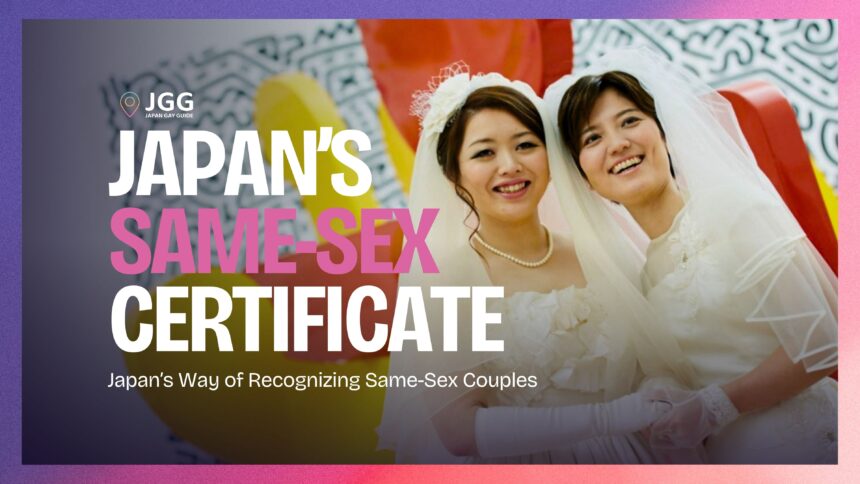As readers will be aware, Japan does not yet recognize marriage equality, nor does it have civil unions that give equivalent rights without the same religious recognitions, as are common in some other countries.
However, the growing recognition of LGBTQ+ and their rights has led smaller cities and wards of larger cities, such as Tokyo, to commit to local ordinances that can assist same-sex Japanese couples to at least gain certain protections that were previously unknown to them, known typically as Partnership Oath Certificates.
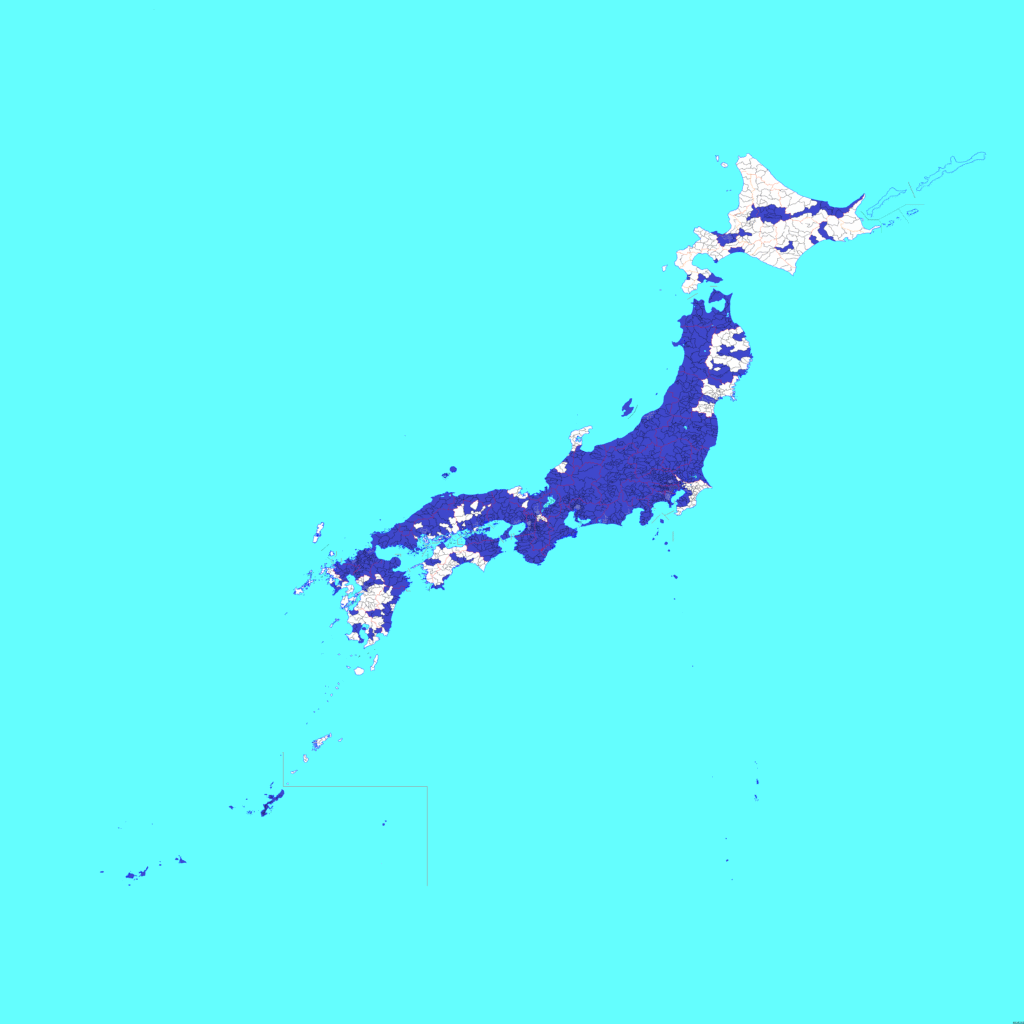
So, a little more than a decade after they were pioneered, what is the status of such certifications today? What can couples who obtain them expect? And are they difficult to obtain?
Earliest Advances
The first place in Japan to offer partnership certificates under their “partnership oath system” (パートナーシップ証明制度, pātonāshippu shōmei seido) was the central Tokyo ward of Shibuya in April of 2015.
This certification, which at the time was only valid in Shibuya, went some way towards addressing some of the concerns that many LGBTQ+ couples have, in the absence of marriage equality. These include, hypothetically, hospital visitation rights, as well as a right to be free from discrimination when it comes to housing.
Following the introduction in Shibuya, there was some initial pushback from some members of the national government, as the “Special Committee to Protect Family Ties” was formed to see if Shibuya’s plans could be legally prevented (including the opinion that this surely “discriminates” against heterosexuals). However, after it was concluded that, since these certificates do not constitute an actual marriage, there is no reason to prevent them.
A friend of JGG remarks, “This is the only certification you can get as a member of the LGBTQ+ community in Japan, and it provides support for gay couples regarding welfare benefits.”
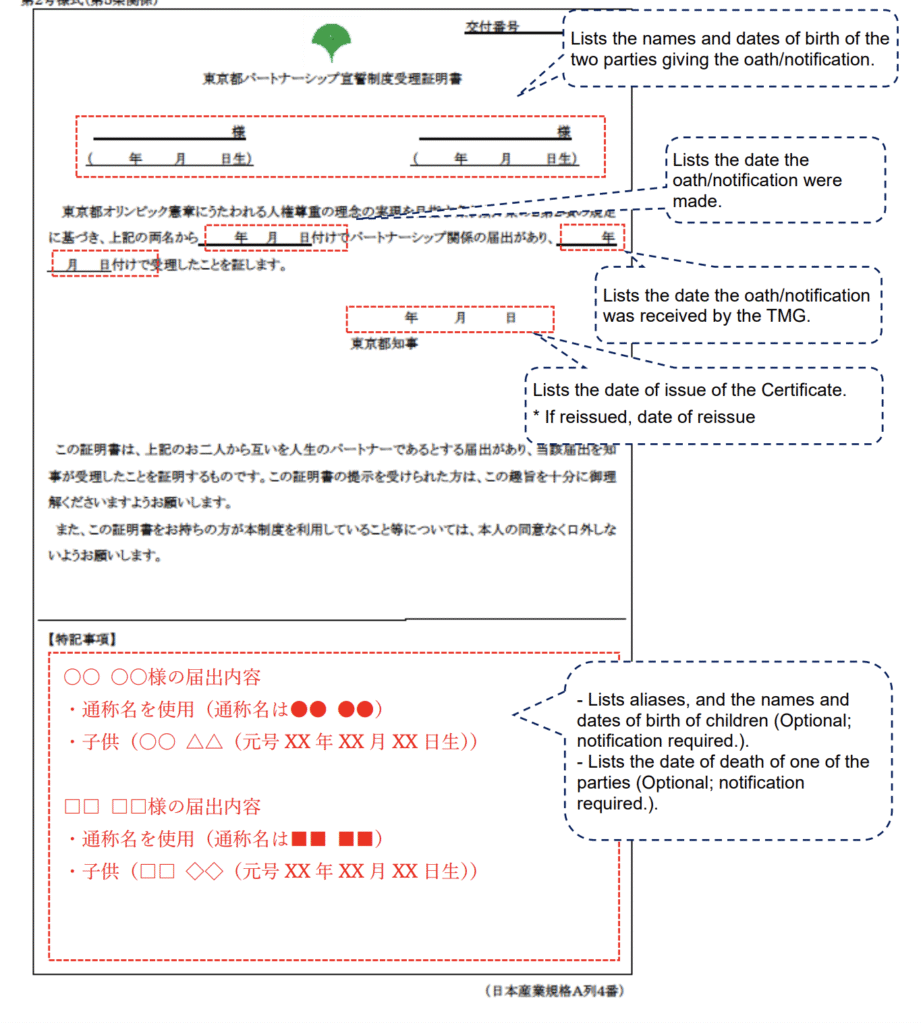
Expansion of Areas that Offer Partnership Oath Certificates
Soon after this victory for Shibuya, as well as high-profile “weddings” upon the issuance of certificates, many other areas in Japan began to offer similar certifications. Just one year later, it had been joined by Setagaya, another Tokyo ward, Iga in Mie, Takarazuka in Hyogo, and Naha in Okinawa.
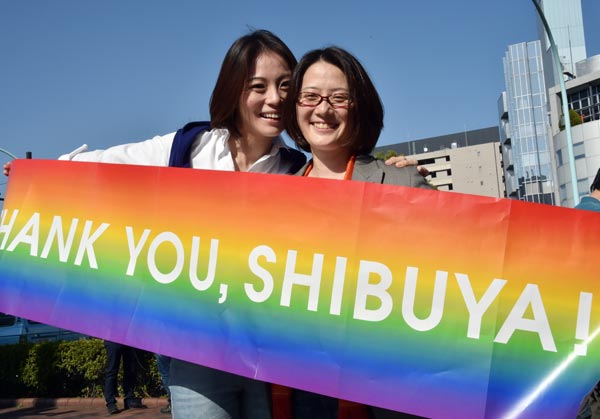
Soon, the number of cities and municipalities that issued and accepted partnership oath certificates was growing rapidly: too many to name here. In 2019, 21 cities established this system; in 2020, so did 36 more; in 2021, 69 cities adopted the system; 107 more followed in 2022; and in 2023, a further 106 cities joined them.
But while this was welcome, there was often one glaring issue: many of the certificates would only be recognized in their place of issue: if you moved from Shibuya to Naha, your certificate may not be recognized, and you may have to start again… as well as return your existing certificate to its place of issuance.
Creation of Prefecture-wide Certificates and Networks
In 2019, Ibaraki became the first prefecture to consider and conclude that, rather than having each city and municipality offer partnership oath certificates, instead the process should be standardized, and certificates accepted across the entire prefecture.
As Shibuya’s pioneering efforts were quickly replicated across the country, so too was the concept of a prefecture-wide ordinance to implement comprehensive partnership oath certificates. In 2020, Osaka announced similar plans, followed by Gunma and Mie. In 2021, Tokyo followed suit.
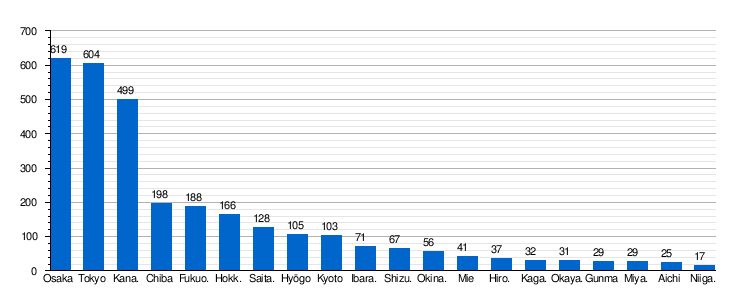
Additionally, there have been efforts in recent years for different prefectures to mutually recognize certificates, to make lives easier for those who have them, and to promote understanding between the people of Japan. in 2024, Hyogo and Osaka announced the formation of the Partnership System Inter-Municipality Collaboration Network (:パートナーシップ制度自治体間連携ネットワーク/Pātonāshippu seido jichitai-kan renkei nettowāku). This would see the two prefectures recognize their prefectural and municipal certificates, and was soon joined by 17 prefectures and over 150 cities by the end of the year.
As of today, over 92% of Japan and its population are covered, in one form or another, by the assurance that their local government will be capable of issuing a partnership oath certificate.
How to Get Your Partnership Oath Certificate
Somewhat unusually for Japan (perhaps due to the novelty of this system) the process for this is relatively simple, and can be achieved entirely online. All you need to do is follow a few steps, and if everything is in line, you’ll receive the certificate.
“Getting a certificate is easier than I thought,” our friend says. “You can do it face-to-face, but you can also do it completely online.”
Every municipality, ward, or prefecture will have a slightly different procedure. However, many follow the Tokyo Partnership Oath System to one degree or another, so we’ll use this as a brief explanation, though the full process can be found here.
Register Online and Submit Your Documents
Registering online is fast and simple, as is uploading the documents that you need, which are generally not too difficult to get a hold of. After the local authorities accept your documentation and confirm that there are no issues, your certificate of acceptance will be issued to you within ten working days.
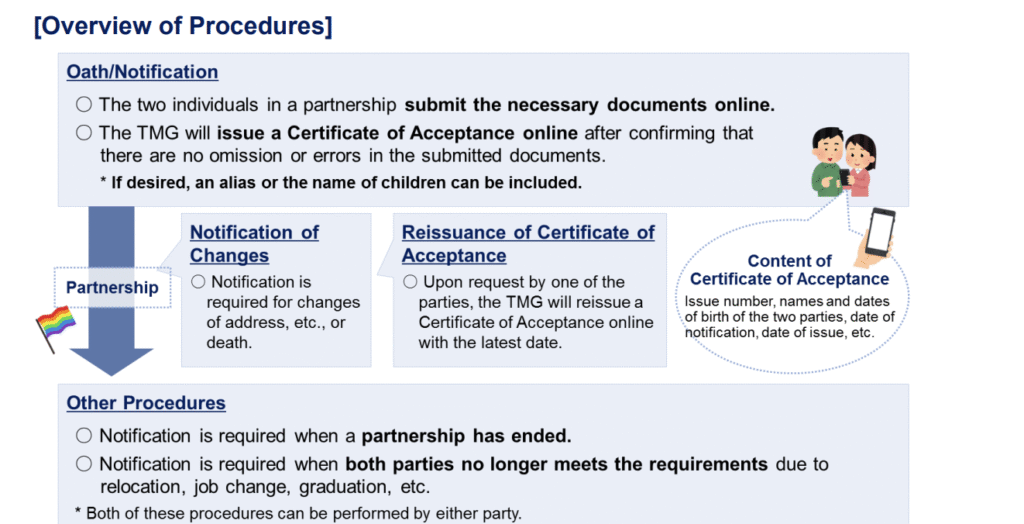
Necessary Documents
The documents you’ll need are, as mentioned, generally not difficult to obtain, though many will need to be copies produced within three months of your submission.
- *Koseki shohon/*family registry summary (for Japanese nationals)
- Certificate of no impediment to marriage (to be acquired from your ward office or embassy, to prove that you not currently married. Foreign nationals must also provide a translation)
- ID (passport, zairyu card, driving license, etc.)
- A recent photo that is different from any in your previous documents
Additionally, you will need to submit (specifically for Tokyo) one of the following from at least one of you:
- If living in Tokyo, a certificate of residence
- If working in Tokyo, a certificate of employment
- If studying in Tokyo, a certificate of enrollment
- If planning to move to Tokyo, a sale, lease, or rental contract
Many of these can be obtained from your place of work, study, bank, or city hall.
Benefits of a Partnership Oath Certificate
Some of the benefits of obtaining a Certificate of Partnership Oath is that you will have access (ideally: this will be explained below) to a number of things that are typically only available for married heterosexual couples.
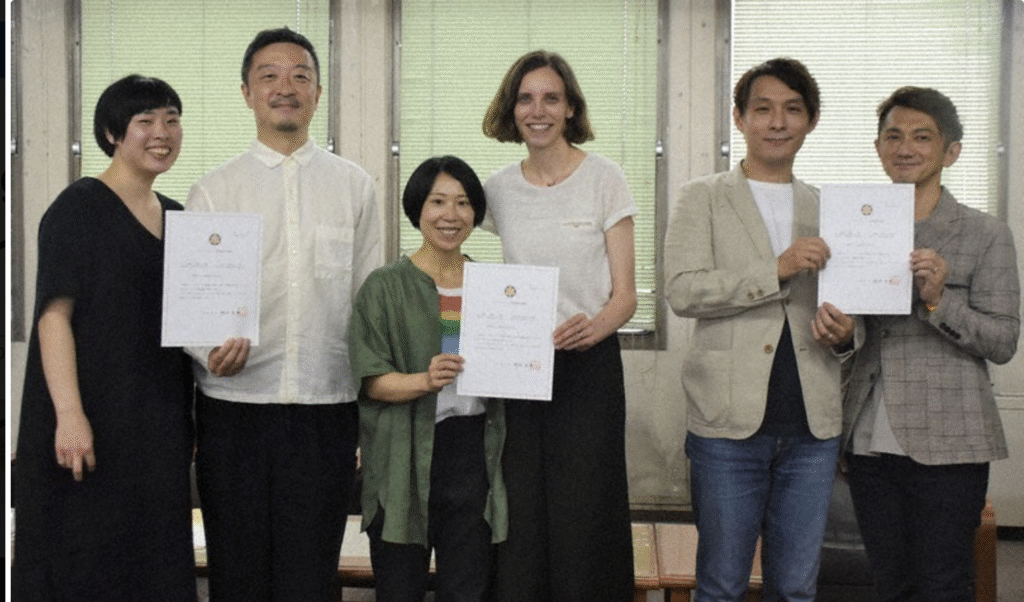
These include being able to make medical decisions for your partner if they are badly injured or ill, or otherwise incapacitated; being able to collect life insurance; not facing discrimination in terms of housing, including being able to access government housing for families. If you have children, this also allows a non-biological parent to make medical decisions and collect them from school.
JGG’s friend says, “The system is recognized by many large companies in Japan. My company is a major accounting firm, and they accept it, as do many other similar professional businesses.”
Limits to Partnership Oath Certificates
Regrettably, Certificates of Partnership Oaths, while businesses and government agencies are strongly advised by issuers to be recognized, are not legally binding. As such, while there have been victories for LGBTQ+ people, there are very few actual legally binding agreements that can be made by couples that will mean that you are capable of suing if what many (but not always the Japanese national government) believe to be your basic human rights are denied.
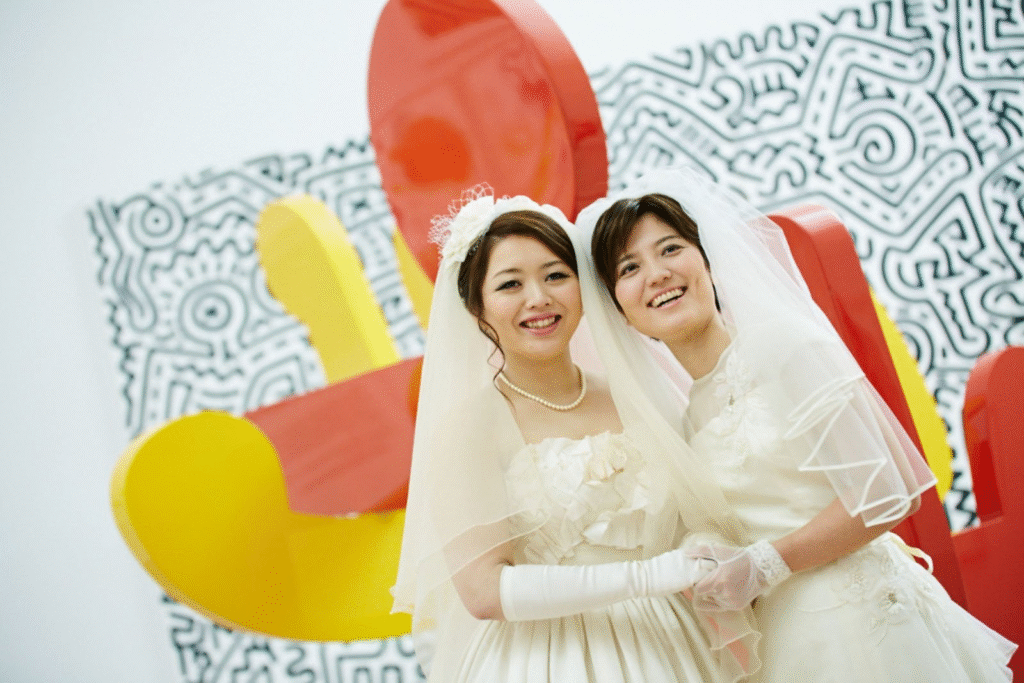
Until marriage equality is achieved in Japan — a position which is popular among the majority of the Japanese people, as well as the majority of opposition parties in the Diet — then, sadly, the Partnership Oath System is the best way (excluding some interesting approaches to adoption that we have covered before) to maximize rights for LGBTQ+ people.
Our friend agrees: “there’s a need for same-sex marriage in society. It’s our right to have the same treatment as heterosexual couples,” they say. “I hope that in the future, it becomes legal to admit the existence of same sex marriage in Japan.”
However, the successes of this system, including its popularity and usage among a number of major LGBTQ+ figures, such as Koyuki Higashi, as well as the rapid adoption by municipal governments over the past decade, prove not only that support for LGBTQ+ people is alive and well in Japan, but that though it is not yet perfect, things can still improve for sexual minorities, even if it is sometimes one town at a time.
Read our Gay “Marriage” In Japan article!
